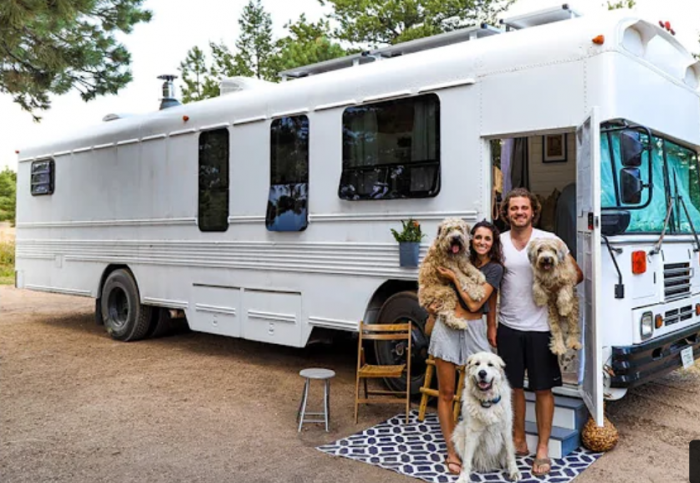
It could be that I’ve watched every tiny home video there is.
Over the last five years, I’ve been exploring alternative housing and what it could mean to society. I’m fascinated by the idea of simplifying one’s life, reducing or eliminating debt, and participating in grassroots movements that could have a positive impact on human life as well as the environment.
As a long-time student of transcendentalism and what H.D. Thoreau would call “civil disobedience”—escaping from the rat race, reducing consumption, and living sustainably has always been an attractive vision. My family and I did live in a cabin in the woods for a while without indoor plumbing or other facilities, and I could easily go back to it.
Living in this small cabin was nothing like the fancy tiny homes I see on YouTube. It was a choice we made because I wanted my daughters to experience an adventure, it was accessible (my family’s summer cottage that I grew up with) and therefore affordable, and because I had many idealized notions about transcendentalism.
Recently, I came upon a video by YouTuber Alice Cappelle, called, “The Failed Utopia of the Tiny House Movement.” It spoke to something I had been thinking about—how accessible is this lifestyle to anyone and everyone, and the reluctance of the government to legalize tiny home living.
We recently bought some land and to go tiny, would be to contravene municipal by-laws. In our present financial and environmental climate, it is unbelievable that there is no provision for affordable housing such as this. Politicians are slow to challenge the status quo even in the face of housing crises.
As Cappelle mentions, tiny home living is an architectural and social movement focused on ideas of minimalism, fiscal responsibility, independence, living simply in small spaces, environmental consciousness, adventure, and relative self-sufficiency.
Her observation and I’m sure that of many others, is that singles working remotely, retirees with capital for building fantastical tiny homes, and predominantly white couples, seem to be the majority within the tiny home lifestyle.
Have you watched the film “Nomadland” with Frances McDormand? It’s a sobering story based on the true life of many seniors and others who live tiny in their RVs not necessarily out of an idealized philosophy but need for an affordable situation.
If I lived tiny, I’d be one of those white folk who afforded land and a well-designed home. I happen to be someone who cares about societal sustainability, but still, I fit into the demographic Cappelle mentions. I don’t think there is anything wrong with my wanting to live simply or to be environmentally conscious of course, and I applaud all those folk who have lowered their footprint with their tiny home life. It’s all good, but, we can do more.
Let’s advocate for affordable housing for all, to legalize what only makes sense in a crumbling world. Let’s think deeply about this. I will always love the tiny home movement, and appreciate those who document it with such passion. I just hope for it to lead to real change for everyone. Let’s talk.
~
~
No comments:
Post a Comment